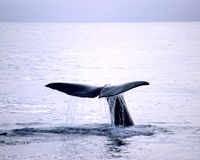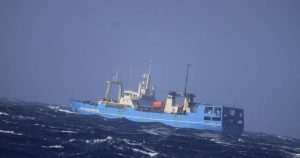The Regional Secretary of Environment and Climate Change, Susana Prada spoke at the Legislative Assembly of Madeira to propose a new Regional Legislative decree to combat and minimise the harmful effects of invasive species in the Region.
The proposal entitled “Approves the legal regime applicable to the control, detention, introduction into nature and repopulation of exotic species in the Autonomous Region of Madeira and ensures the implementation, in the regional legal order, of Regulation (EU) No 1143/2014, the European Parliament and the Council of 22 October 2014 on the prevention and management of the introduction and spread of invasive exotic species”.
Susana Prada explained the reasons for the need for the new text, with pests such as defiloxera, “coming from North America, and which decimated the European wine industry in the mid-19th century, and the introduction of goats on isolated islands that devastated ecosystems, leading to the decline and extinction of countless island endemics.”
“At a time when the world is struggling with a worrying biodiversity crisis, in which invasive alien species are one of the greatest threats, with impacts on food and economic security, health, and the provision of ecosystem services, it is necessary to implement mechanisms that prevent the risks associated with these species,” she said.
In 2014, a Regulation of the European Parliament established a legal framework to minimise the adverse effects of invasive species.
“More recently, Decree-Law 92/2019 established a new legal regime applicable to the control, detention, introduction into nature and repopulate of exotic, invasive, and non-invasive species, with the possibility of their adaptation to autonomous regions,” she said, further stating, “In this way, we adapted them, taking into account the sociocultural and economic reality of Madeira and its unique and geographically and evolvingly isolated delicate ecosystems.”
In this sense, “an adaptation that guarantees rules and mechanisms that safeguard the public interest, biodiversity, and sustainable development of the Region and that effectively responds to compliance with national and international obligations, such as the Basic Law of Environment Policy, the National Strategy for Nature Conservation and Biodiversity 2030, the European Union Biodiversity Strategy for 2030, and the very recent Kunming-Montreal Framework for Global Biodiversity.”
Moreover, “as is the case at the national level, this diploma applies only to exotic species considered invasive and to exotic species that are not considered invasive, do not exist in the Region.”
“Thus, and because sometimes it may be necessary to import new non-invasive alien species – species of low ecological risk, but which can provide benefits such as pest control – the procedures for their introduction are updated.”
The secretary also clarified that “the goal is to establish conditions that allow the containment of any unexpected adverse effect on regional biodiversity”.
“As far as invasive alien species are, what we have been doing for decades is reinforced, strengthening the mechanisms of surveillance, early detection, and control, such as the ordering of grazing in the mountains, completed in 2003, which ended the existence of loose cattle, without rules, which led to the devastation of ecosystems that, still today, struggle to regenerate; and the eradication of invading vertebrates from virtually all small islands of the Archipelago, a reference at European level, in particular the case of Selvagens, the only group of islands completely free of invasive mammals in the North Atlantic.”
“However, considering the specificities of the Region, and the fact that some invasive species have acquired relevant economic and cultural interest, exception regimes are defined, with very clear rules for their use.
Species such as açucena, brincos de princesa, canavieira, babosas, and gatos, used for several generations and that are part of our culture, will continue to be able to be used with some conditions. In this way, we safeguard conservation interests in sensitive areas and maintain the commercial and social use of culturally relevant species.”
“We live in an incredibly diverse world where millions of species coexist and interact in complex ecosystems. As a society, we have a responsibility to preserve this rich biodiversity while protecting culture, the economy, and people.” concluding, she said, that the proposal now presented is “considered by experts to be one of the most complete at European level, and has been the target of auscultation to regional authorities and has earned its assent”.
And for these reasons, Susana Prada asked for approval from the Legislative Assembly of Madeira.
Samantha Gannon
info at madeira-weekly.com








